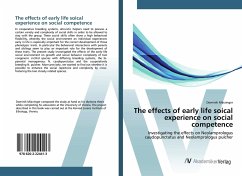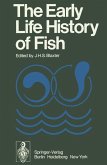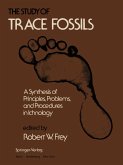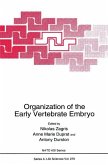In cooperative breeding systems, altruistic helpers need to possess a certain variety and complexity of social skills in order to be allowed to stay with the group. These social skills often show a high behavioral flexibility, whereby the social environment an individual experiences early in life is especially important for the correct development of those phenotypic traits. In particular the behavioral interactions with parents and siblings seem to play an important role for the development of these traits. The present study investigated the effects of the early-life social environment on growth and social behavior complexity of two congeneric cichlid species with differing breeding systems, the bi-parental monogamous N. caudopunctatus and the cooperatively breeding N. pulcher. More precisely, we wanted to find out whether it is possible to enhance the social repertoire and complexity by cross-fostering the two closely related species.
Bitte wählen Sie Ihr Anliegen aus.
Rechnungen
Retourenschein anfordern
Bestellstatus
Storno








